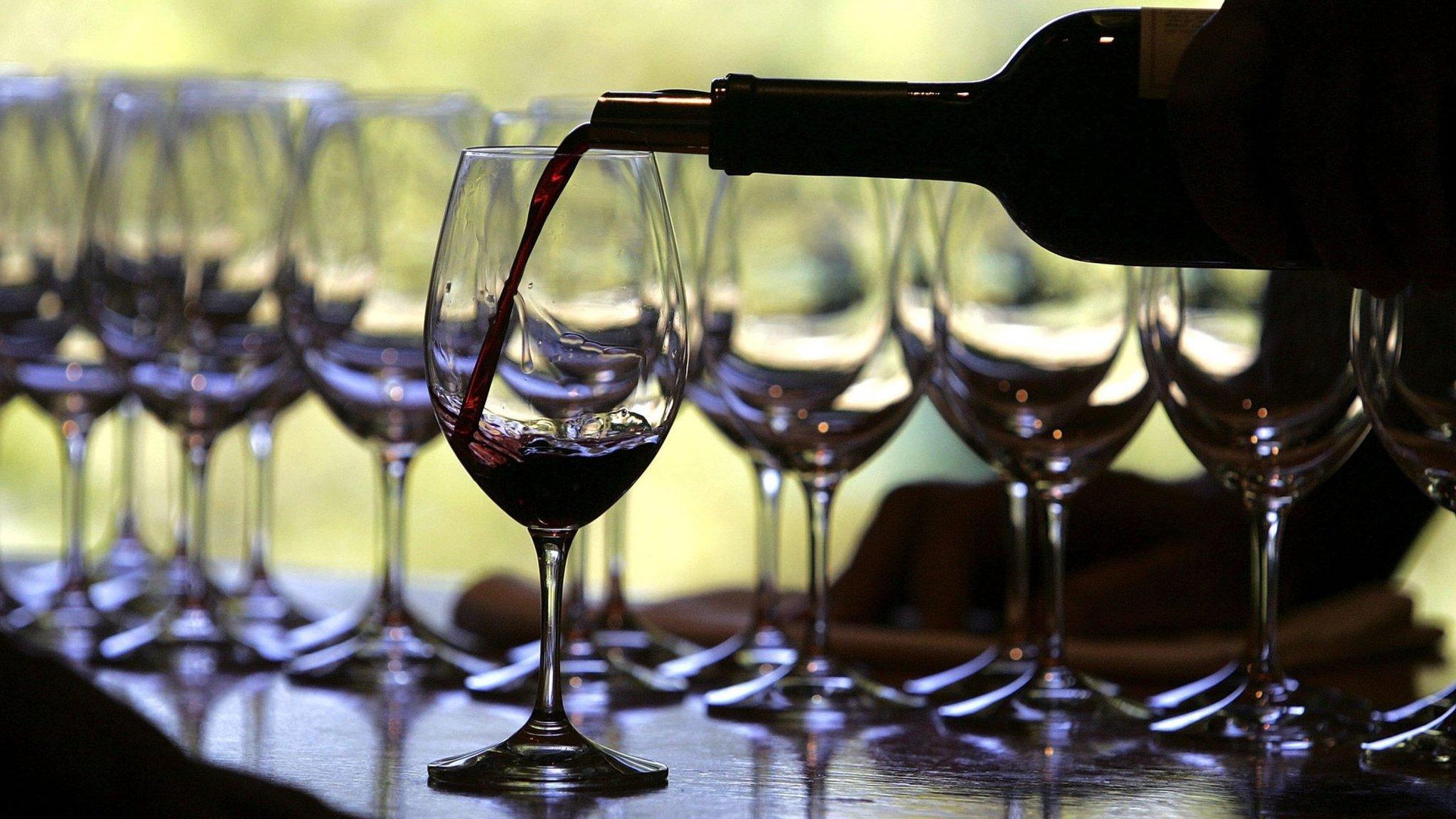Border off-licences hoping to cash in on Irish minimum pricing
- Published
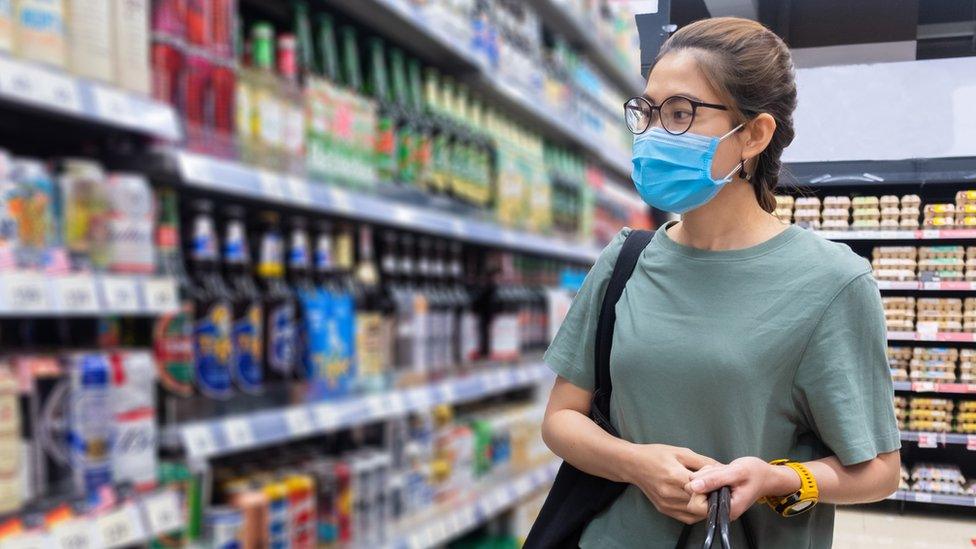
Shoppers could be tempted over the border for cheaper alcohol
Travelling across the Irish border to bag a bargain is nothing new.
It has been happening for as long as exchange rates have fluctuated or the economy on one side outperforms the other.
But a new public health policy in the Republic of Ireland has some businesses in Northern Ireland hoping for a surge in cross-border customers.
Earlier this month minimum unit pricing on alcohol came into effect south of the border.
The policy is similar to those in place in Scotland and Wales and is one the Irish government believes will change dangerous drinking patterns.
But similar measures are not in place in Northern Ireland.
A body representing Irish off-licences says that means many products now retail at twice the price in the Republic of Ireland compared to Northern Ireland.
That has some border businesses readying for a spike in trade.
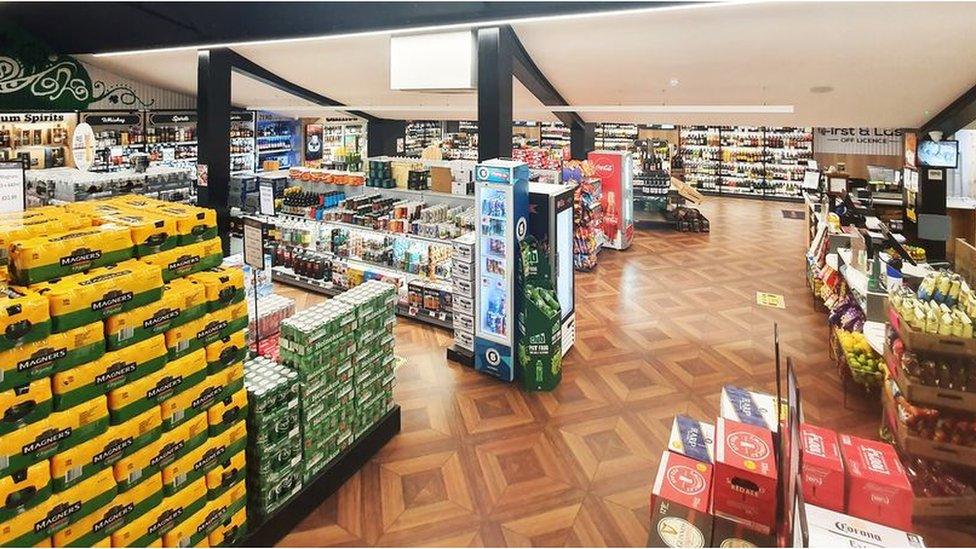
One County Armagh off-licence hopes the policy will maintain the rise in trade seen during the pandemic
Among them is the First and Last Off-Licence in Jonesborough, County Armagh.
Located just off the main Belfast to Dublin motorway, few businesses can be as well situated to cash in.
Manager Seamus McNamee told BBC News NI he is hopeful of "a massive surge in cross-border business".
Enquiries have been made by potential customers from as far away as Limerick and Tipperary.
But, he said, it is too early to note any tangible change in cross-border trade.
"It's just after Christmas, people will be getting the credit card bills in, but give it a few months and we will be in a good place," he says.
In the meantime he is doing all he can to encourage customers from over the border.
Plans to advertise in a number of Dublin-based newspapers are being finalised, a leaflet drop across the border too.
He is hopeful those endeavours will reap rewards.
He is in no doubt that "once the politicians in the north get their act together", minimum pricing will be introduced in Northern Ireland too.
It makes sense in terms of public health, he said, but for now "we'll try and make hay while the sun shines".

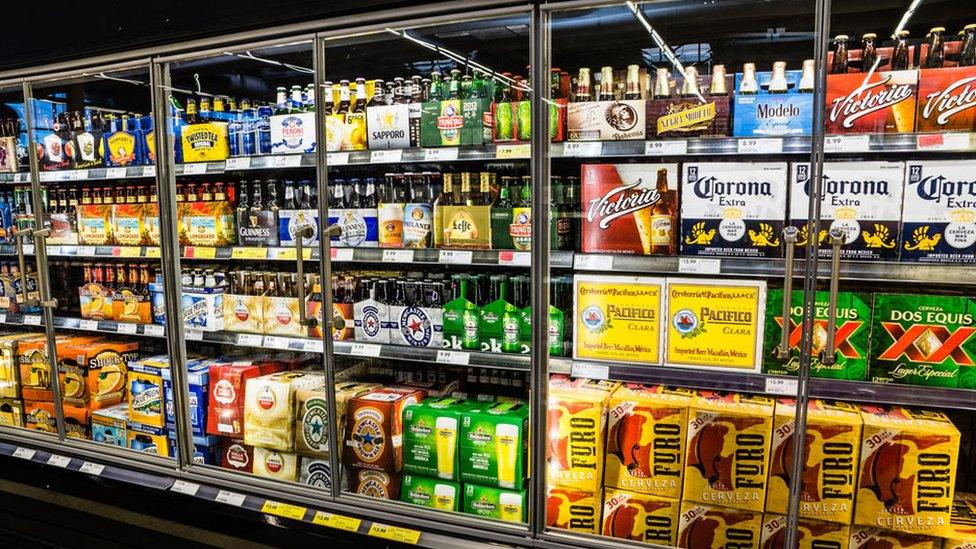
A can of beer cannot be sold for less than €1.70 (£1.40) in Ireland
How does the Republic of Ireland's minimum pricing work?
Under the new measures, a standard bottle of wine cannot be sold for less than €7.40 (£6.40) and a can of beer for less than €1.70 (£1.40).
Spirits with 40% alcohol content cannot be sold for less than €20.70 (£17.30) and a 700ml bottle of whiskey for less than €22 (£18.40).
The Irish government believes minimum pricing is a vital public health measure.
The measure aims to change dangerous patterns of alcohol behaviour with the intention of deterring binge drinking and affects alcohol sold in off licences, shops and supermarkets.
Scotland introduced minimum unit pricing in 2018 and the following year alcohol consumption fell to its lowest level in more than two decades.

Londonderry businessman Garvan O'Doherty agrees it is too early to assess the impact on his business.
January is also the wrong month to gauge any increase in trade from across the border, he says.
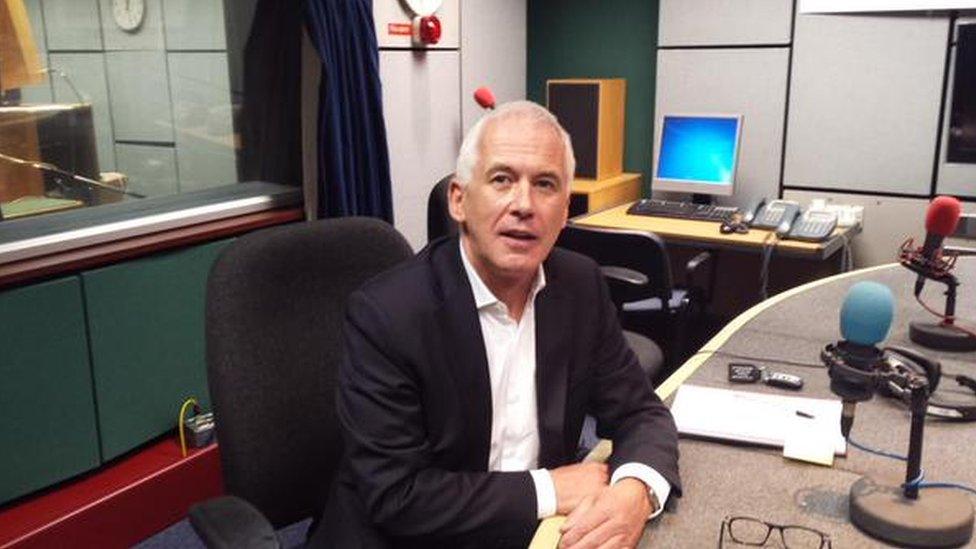
Derry off-licence owner Garvan O'Doherty
He owns five Chill off-licences in Derry, some close to the border with County Donegal.
"January is normally a very slow period but we have noticed for last week's trade a 3% increase, which we are attributing to cross border shoppers.
"Most people have either stocked up or are fed up having a drink over the Christmas period," he adds.
But he is also hopeful things change in the months ahead.
Already he has noticed "price-checkers" come from the Republic.
'Twice the price'
The chief executive of a trade body that represents many off-licences in the Republic of Ireland says it is only a matter of time before people start to travel to buy alcohol.
Vincent Sweeney, who heads up the Convenience Stores and Newsagents Association, says people will "save themselves very considerable amounts of money by going north of the border".
Some products are now twice the price in the Republic than they are in Northern Ireland, he adds.
"I think it has come as an enormous shock to people just how great the differential has been."
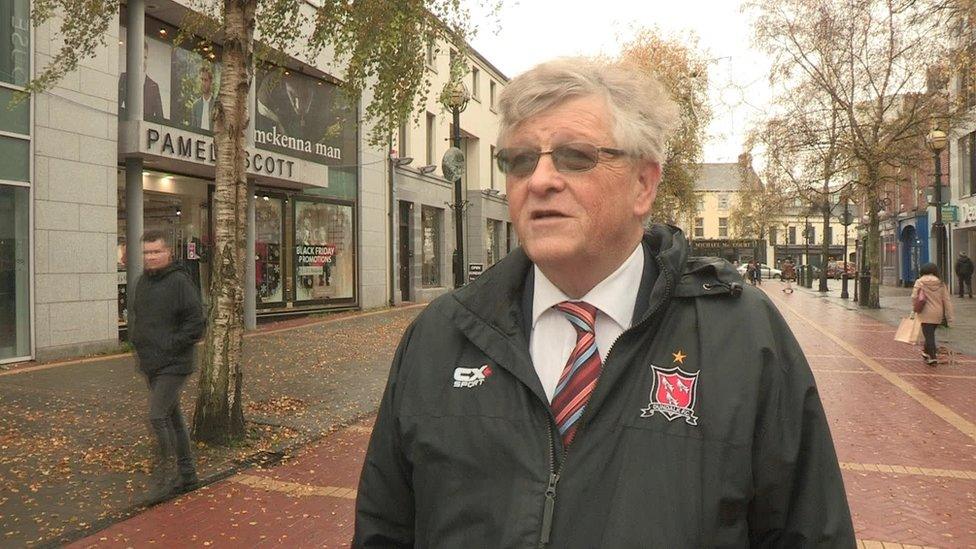
Paddy Malone beleives minimum pricing needed an all-island approach
In Dundalk, the business community is concerned once shoppers travel for one product, their wider shopping habits will change too.
"People aren't necessarily going to travel across just to buy alcohol," says Paddy Malone of Dundalk Chamber.
"But what they might do is travel north for the big weekly shop so they can buy alcohol, they do that once or twice and it becomes habit.
"And people are creatures of habit, that's what we would worry about."
Border regions have always been at the mercy of economic conditions that favour one side over the other, he adds, and businesses have always found a way.
But, he says, what should have happened, is "this should have come in at the same time, on the same day in both the north and the south".
'Real impact on public health'
Moves to introduce minimum pricing in Northern Ireland have been talked about for more than a decade., with the Department of Health saying plans are moving forward.
An all-island policy has also been discussed previously.
A Department of Health spokeswoman said the policy has the "potential to be a key population-level health measure to address the harms related to alcohol consumption".
She said a consultation on minimum unit pricing is being developed and that it is anticipated it will be issued early this year.
- Published4 January 2022
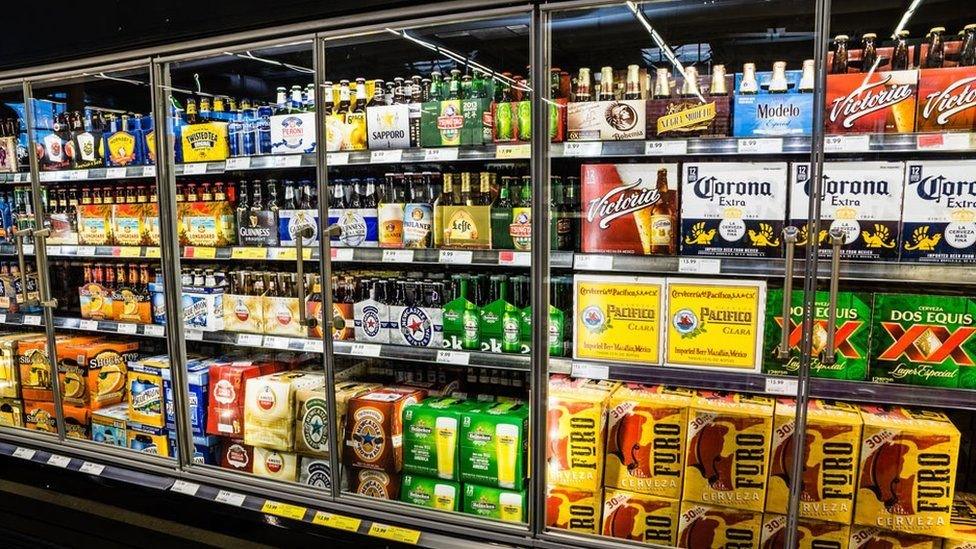
- Published23 December 2019
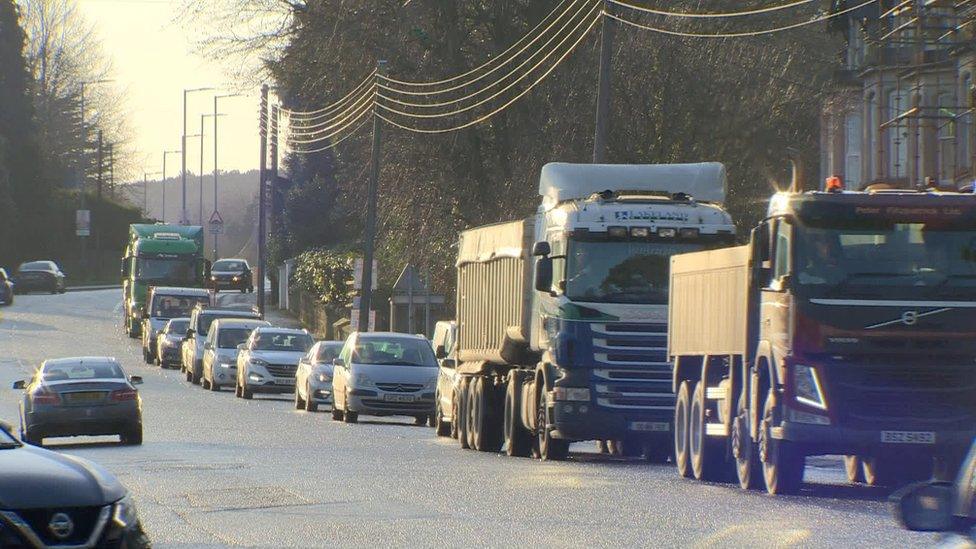
- Published6 August 2013
